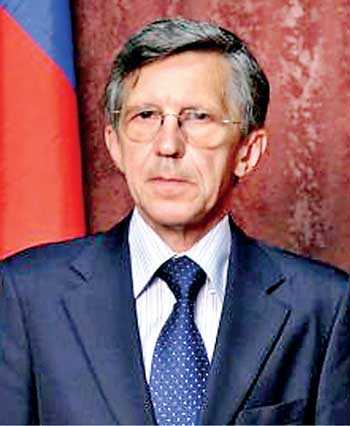Friday Feb 27, 2026
Friday Feb 27, 2026
Monday, 2 September 2019 01:10 - - {{hitsCtrl.values.hits}}
By Yury Materiy
Sunday, 1 September 2019, marked the 80th year since the beginning of the Second World War. This bloodiest and most destructive war in the history of mankind raged for six years and ended on 2 September 1945.
Armies from 61 countries with a total population of 1.7 billion people, 80% of the total population of the planet at that time, participated in the war. The war claimed lives of over 60 million people, largely among civilians. The Soviet Union suffered the greatest losses as the Nazis had deployed two-thirds of their troops on the Eastern Front; 26.6 million Soviet people perished.
The beginning of the Second World War was preceded by many different diplomatic and political factors. The Nazis established not only a powerful modern army, but also a bloc of fascist states which became their allies in Europe. 
Despite all efforts made by the USSR, it was not possible to avert the war. Culmination of the policy of appeasement which shook the political situation in Europe and pushed for the outbreak of the war, was the Munich Agreement that was signed in September 1938 between Britain, France, Nazi Germany and fascist Italy. Under this agreement, Czechoslovakia was forced to “voluntarily” cede part of its territory to Germany.
This was the beginning and Poland was next in Hitler’s plans. The protracted attempts of the Soviet Union to persuade the governments of Britain and France to conclude an agreement on mutual assistance in the event of an aggression were in vain.
In such a situation, having found out that it had been left alone before the obvious danger of aggression, in 1939 the USSR had no alternative but to sign a non-aggression pact with Germany, known as the “Molotov-Ribbentrop Pact”.
Those who are now trying to “rewrite” history and claim that it was this pact that pushed Hitler to war, for some reason “forget” about the Munich Agreement of 1938. In fact, this pact enabled the Soviet Union to hold back Hitler’s attack for almost two years and to strengthen the defense capability of Soviet forces.
On 1 September 1939 after a provocation carried out by German “secret services,” military operations began against Poland. Two days later, England and France declared war against Germany. They were immediately supported by Canada, New Zealand and Australia, India and the Union of South Africa. Poland, however, did not receive a real help that it needed so much.
That is how 80 years ago, on 1 September 1939, the first stage of the Second World War began. Until May 1940, England and France had not changed their policies, hoping that Germany would continue its offensive only to the East. But things did not turn out that way.
In April 1940 Denmark and Norway fell in the path of the German army. It carried out the attack on France through its neighbouring countries – The Netherlands, Belgium and Luxembourg. The armies of Holland and Belgium capitulated. The French fleet was defeated. French, British and Belgian forces which had been blockaded by the Germans in the region of the French port of Dunkirk were evacuated to England. The French Government fled from Paris and signed an act of surrender.
Next in line was the United Kingdom. The Germans formed a blockade of the island and went on to bombard English cities with bombs dropped from airplanes. The steadfast defence of the island in 1940 (Battle for England) briefly restrained the aggression. During this time war began to unwind in the Balkans.
In April 1940 the fascists seized Bulgaria, took Greece and Yugoslavia. As a result, the whole of Western and Central Europe now fell under Hitler’s rule. From Europe, the war spread on to other parts of the world. Italian-German troops launched an offensive in North Africa, and in the fall of 1941, it was planned to begin the conquest of the Middle East and India.
On 22 June 1941 Germany began its attack on the Soviet Union, deploying an invasion army of unprecedented magnitude in history. It consisted of 182 divisions and 20 brigades (about five million people, 4,400 tanks, 4,400 airplanes, more than 47,000 guns and mortars, and 246 ships). Germany was supported by Romania, Finland and Hungary while Bulgaria, Slovakia, Croatia, Spain, Portugal and Turkey rendered assistance.
But the war against the Soviet Union did not go as Hitler had planned. The capture of Moscow and Leningrad failed. The defeat of Germans in the battle of Moscow destroyed the myth of the invincibility of their army. It was at this time when all military forces in the world began to unite against fascism. In August 1941 England and the USA promulgated the Atlantic Charter which the USSR joined.
Eighty years have passed since the beginning of the Second World War, but we should never forget about it. It is one of the most important events in the history of mankind, an event that determined the course of our history.
Mankind has no right to allow the tragedy of “collective suicide” to recur. Any global problems of mankind can and should be solved only through joint efforts, even despite serious contradictions that exist in the modern world.
If the new generations won’t know the truth about this war, if they won’t understand the danger to world peace being posed by those who are trying to glorify the Nazis, then the world may again be on the verge of a great tragedy.
(The writer is Ambassador of Russia to Sri Lanka.)